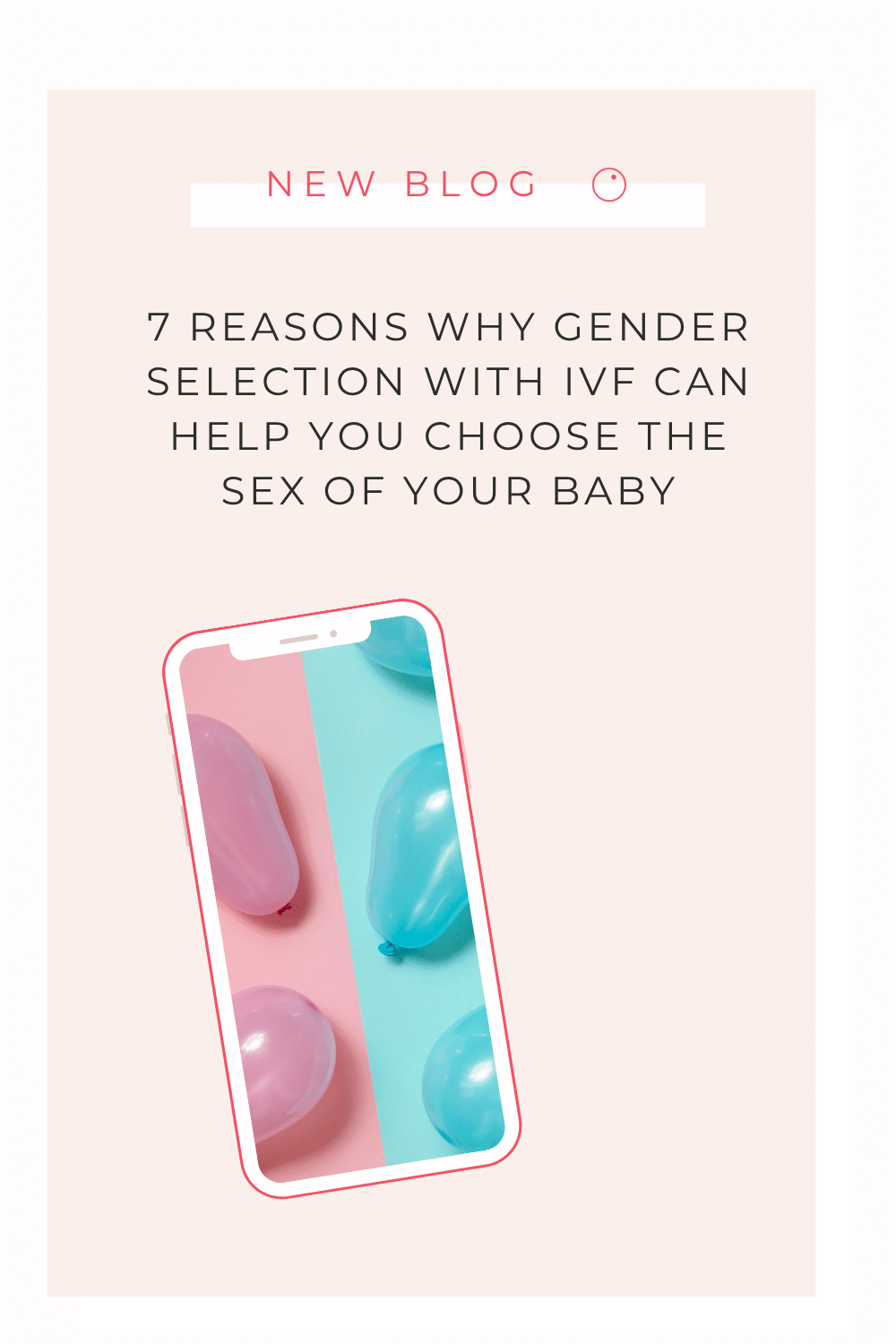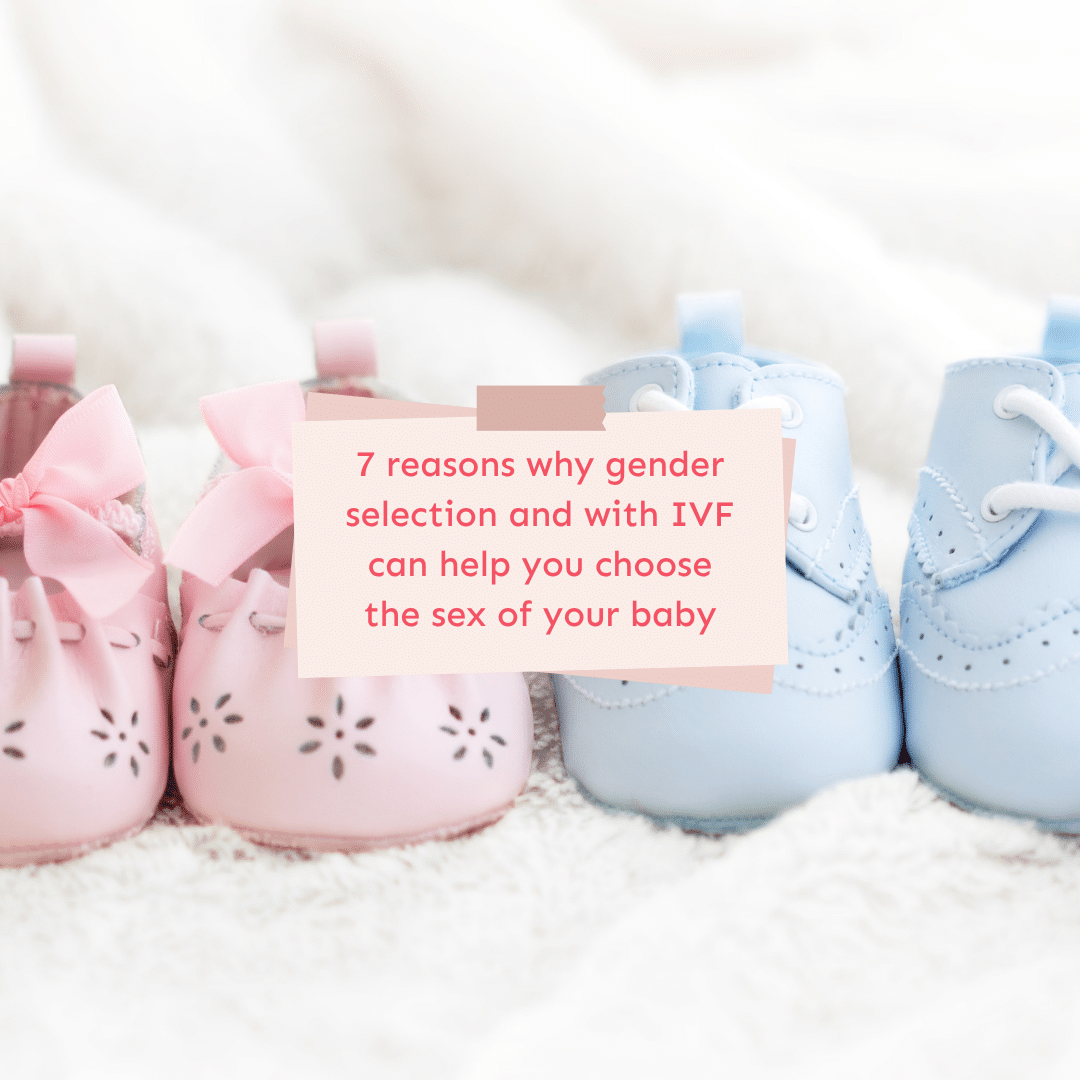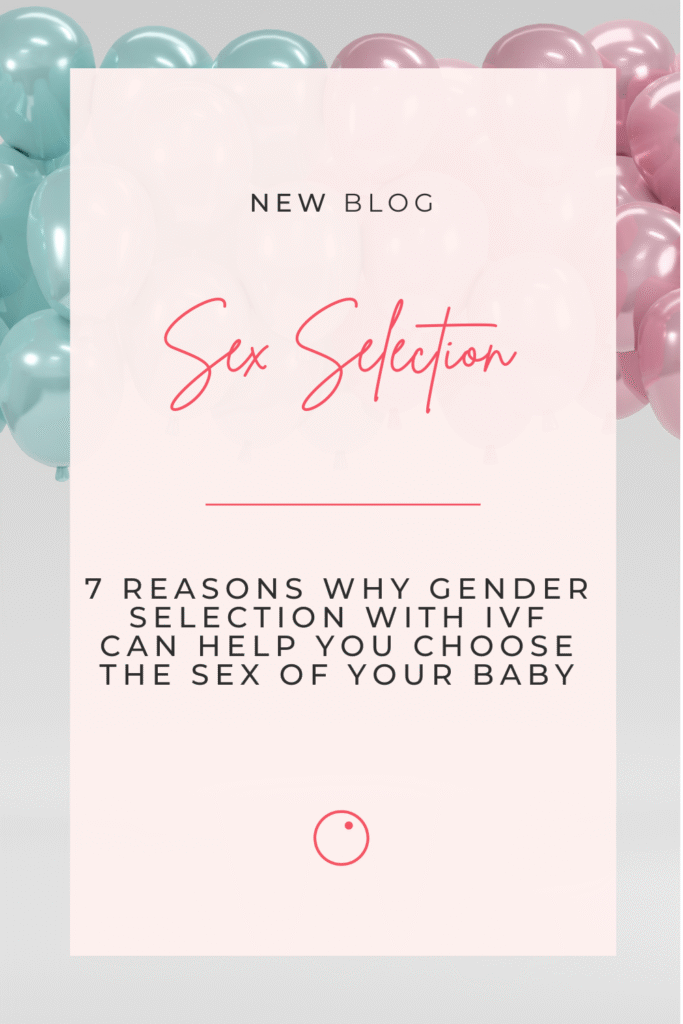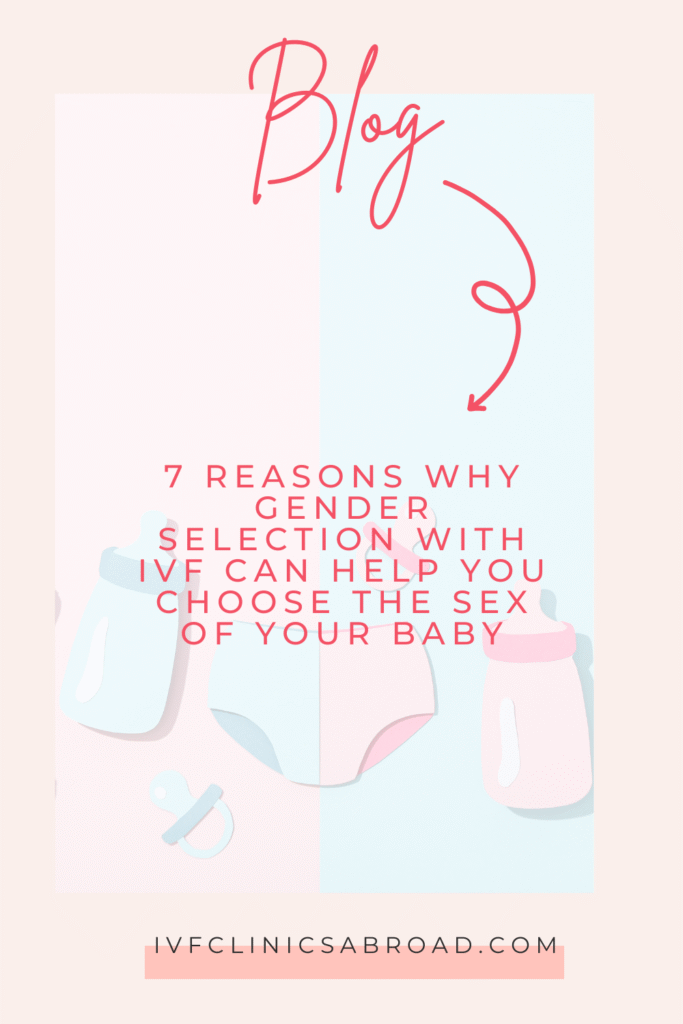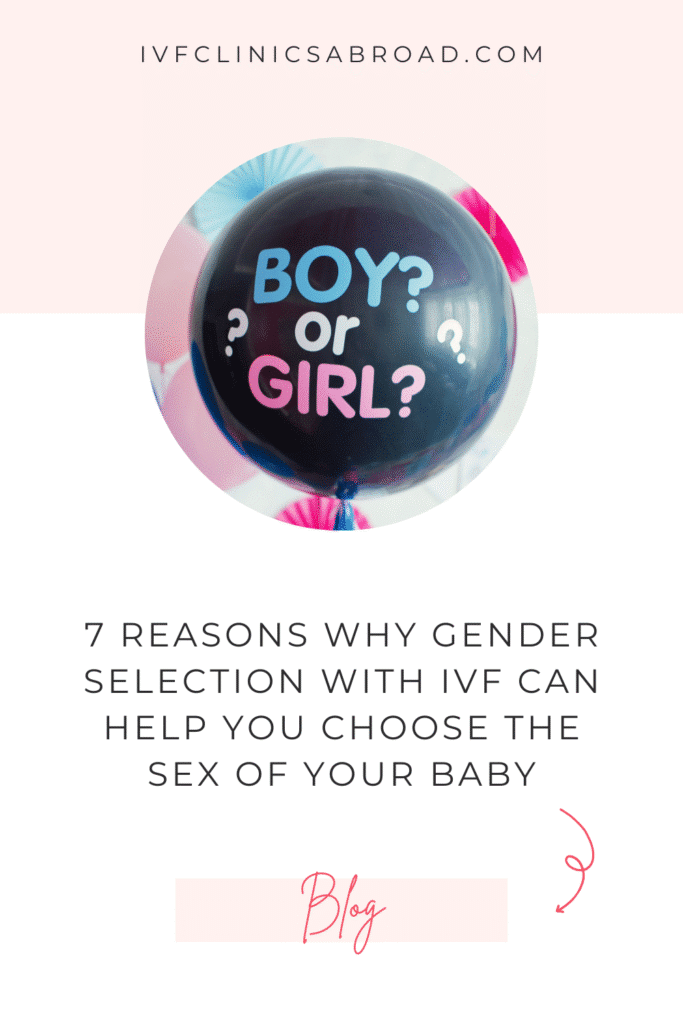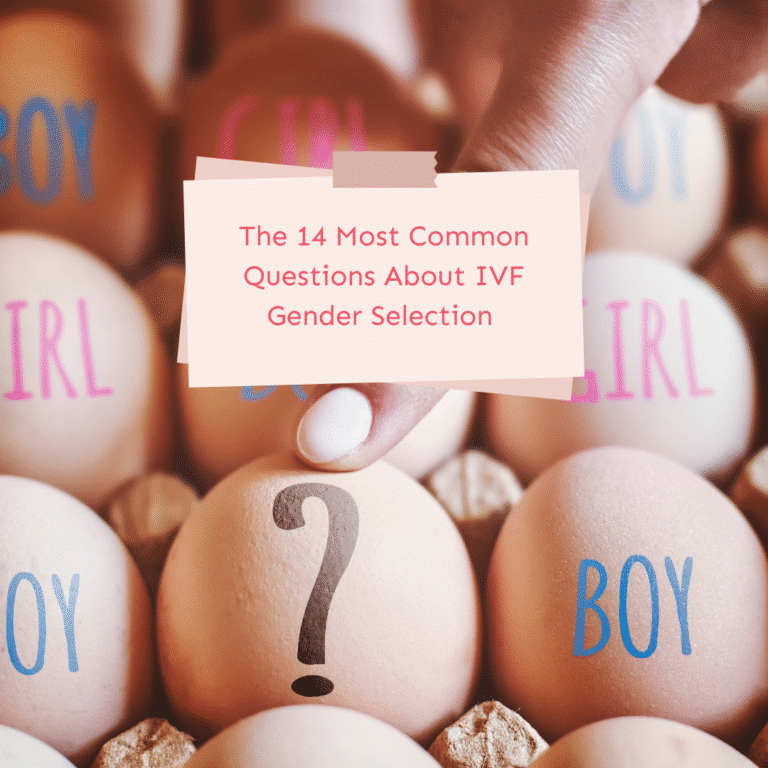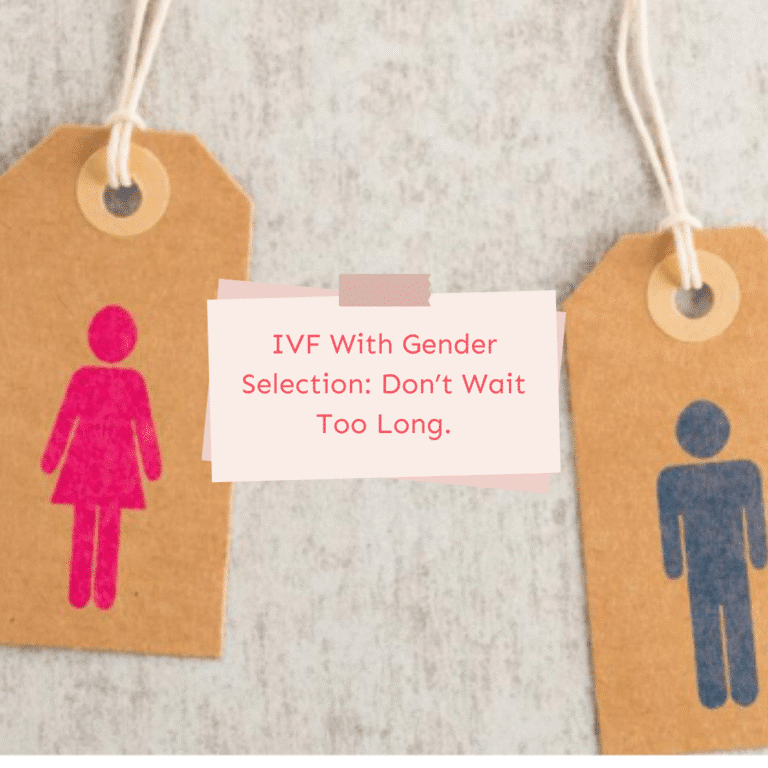7 reasons why gender selection with IVF can help you choose the sex of your baby
If you’ve ever thought about gender selection, you’re not alone. Many couples and single women consider it at some point in their fertility journey – whether for family balancing, medical reasons, or simply personal reasons. In the past, choosing the sex of a child was mostly a dream, but advances in IVF and preimplantation genetic testing now make it possible to know the gender of your child before pregnancy begins. For some, this is about preventing certain inherited conditions. For others, it’s about completing their family with a girl or a boy, especially when they already have children of one sex. This article will discuss 7 reasons why gender selection with IVF can help you choose the sex of your baby.
In many countries, the process of gender selection is carefully regulated, and in some places, selection is illegal except for medical reasons. Still, the idea appeals to parents who wish to plan ahead and feel more confident about their next child. While social sex selection remains controversial, it’s important to understand why the topic is discussed openly today – and how science, ethics, and emotions all play a role.
We’ll explore seven clear reasons for gender selection, from the prevention of disease to cultural traditions, and how the latest selection technology in reproductive medicine – through in vitro fertilization with PGD diagnosis – can help parents who wish to select their baby’s gender. Whether you’re curious about how embryos of the desired gender are identified, or you simply want to know how IVF institutes work with families to plan the sex of their children, this guide will help you decide if choosing the sex of your child is right for you.
Understanding the motivations behind choosing a child’s gender is essential to grasp the broader context of family planning and reproductive choices.
Reason 1: Family balancing and planning the sex of your children
How family balancing works in gender selection
In gender selection, selection for family balancing means using IVF with pre-implantation genetic diagnosis to know the sex before pregnancy. Embryos of the desired gender are identified in the IVF laboratory, and parents can then choose which to transfer. This approach is used to avoid having all children of one gender and to create the mix a family hopes for.
Why planning the sex can make your family feel complete
When you know in advance whether you will have a girl or a boy, it’s easier to imagine daily life with your future child. Parents can prepare siblings for the change, plan family activities that suit children of both sexes, and feel ready for the next stage. For many, it’s about harmony in the home rather than a preference for one sex over the other.
Reason 2: Preventing genetic or sex-linked conditions through IVF
Understanding reproductive risks linked to gender
Some inherited conditions are linked to one gender. For example, certain disorders carried on the X chromosome affect boys far more often than girls. In these cases, knowing the gender of a baby before pregnancy can prevent passing on a serious illness. IVF with preimplantation genetic diagnosis identifies embryos of the desired sex so that parents can avoid a higher risk for their future child.
How embryo testing helps choose the healthiest option
During an IVF cycle, embryos are created and tested in a genetics laboratory before transfer. This testing shows not only the sex but also whether each embryo carries specific genetic conditions. Choosing an embryo without the condition – and with the desired sex – gives parents confidence that they are taking every possible step to protect their child’s health from the time of conception.
“For some families, choosing the sex of their child is not about preference, but about balance, health, and creating the future they imagine.”
Nathalie Wiederkehr
Reason 3: Recovering after the loss of a child
Why some parents want another child of the same sex
For parents who have lost a son or daughter, the idea of having another child of the same sex can feel like keeping a part of that bond alive. It’s not about replacing the child – that’s impossible – but about honouring the connection and memories they shared. Gender selection through IVF allows parents to plan for a baby of the same gender when this is an important part of their healing.
The emotional comfort gender selection can bring
Knowing in advance that you will welcome a child of the same sex can help ease the grief process. It gives parents something concrete to look forward to and can make the transition to life with a new baby feel more familiar. For some, this brings a sense of stability after loss, making it easier to imagine the future while still cherishing the past.
Reason 4: Feeling more prepared to raise a specific gender
Matching parenting styles to your child’s gender
Some parents feel naturally more confident raising either boys or girls. This can be shaped by their own upbringing, experiences, or the children they already have. Gender selection gives them the option to align their parenting approach with the gender of their child, which can make day-to-day life feel more manageable and less uncertain.
Creating a supportive environment for your baby
When the gender is known before pregnancy, parents can prepare a home environment that reflects their vision. From choosing clothes and toys to planning activities and role models, they can focus on creating a space that feels welcoming and supportive. This preparation can make the arrival of the baby smoother and help everyone in the family adjust more easily.
Reason 5: Reducing uncertainty in family planning
Knowing the sex before pregnancy helps preparation
For some parents, uncertainty can be stressful. Knowing the sex before pregnancy begins removes one of the unknowns in family planning. With IVF and preimplantation genetic diagnosis, parents can select the sex in advance, making it easier to plan practical details like space at home, childcare arrangements, or how siblings will share rooms.
How gender selection supports emotional readiness
When the gender is already known, it’s easier to picture life with the new baby and to build an emotional connection before birth. This can help parents feel calmer and more focused, especially when they are already juggling work, family, and the demands of fertility treatment. Reducing this uncertainty can make the whole journey feel more stable and predictable.
Reason 6: Addressing gender stereotypes and gender bias
Why choosing your baby’s gender is not necessarily sexist
Some assume that wanting a child of a specific gender is sexist, but for many parents, the reasons for gender selection are personal and practical rather than based on gender stereotypes. It might be about balancing the family or avoiding a condition that affects one sex. In these cases, the choice is not about valuing one gender over another, but about shaping family life in a way that feels right to them.
How gender selection challenges traditional stereotypes
By openly discussing the reasons for gender selection, parents can help shift the conversation away from outdated gender roles. Choosing the sex of a child for reasons beyond preference can highlight the diversity of family needs and break down assumptions about what boys or girls should be like. This can encourage a more balanced view of gender in society.
Reason 7: Cultural or personal preferences in reproductive choices
Understanding the role of gender in cultural traditions
In some cultures, the gender of a child carries special significance. It may be linked to traditions, inheritance, or family roles. While in many western countries sex selection for non-medical reasons is restricted, in others it is accepted as part of reproductive choice. Understanding these differences helps parents navigate the ethics of sex selection within their own cultural context.
The difference between cultural influence and personal choice
For some, the wish to select the sex comes from cultural expectations; for others, it’s a deeply personal decision. Recognising whether the motivation is external or internal is important, as it shapes how parents feel about the outcome. In the end, what matters is making a choice that reflects their own values and vision for their family.
Your next step
Where to find reliable IVF clinics in Europe
If you are considering gender selection, it’s important to choose a clinic that is transparent about the process and the laws in your chosen country. Regulations vary widely, so knowing where gender selection is allowed – and under which conditions – will save you time and help you plan effectively. Our IVF destination guide includes a list of countries where sex selection for family balancing is currently possible, along with average prices and high success rates for Northern Cyprus.
How to get personalised advice for your reproductive journey
Every family’s situation is unique, and so are the reasons for gender selection. A private consultation can help you understand your options, select the right destination, and feel confident about the next steps. You can request personalised guidance, tailored to your needs, to ensure you make informed choices for your reproductive future.
